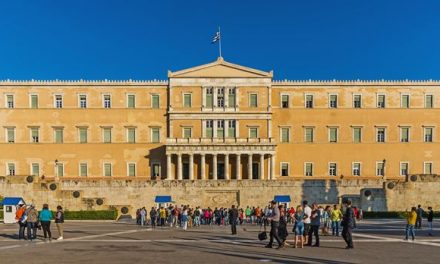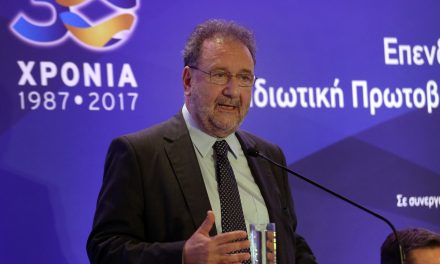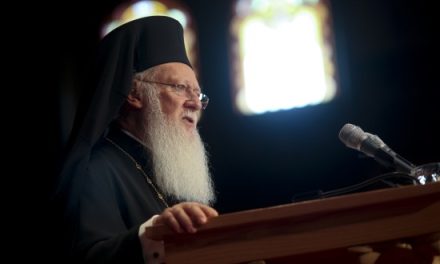In an interview with Panos Charitos in the programme “Focus” on the national TV, Minister of Immigration Dimitrios Vitsas underlined that from the beginning to the 17th of September, 1,403 refugees have been moved from Lesvos island and within this week 1000 more will be transferred to other places of Greece. The minister explained that the issue is not totally solved, adding that the efforts are continued and will be continued. Since January 1st 2018 until September 17th, he said, 17,563 refugees have left from the Greek islands, but about 21,737 new refugees and immigrants have arrived.
With regard to the identification centre of Moria, Minister Vitsas said that “in cooperation with UNHCR, we created 7,000 places in the last 7 months, and another 10,000 are going to be created”, adding that “we are still depending on the migration flows and the process of redistribution. In the islands of Lesvos, Samos and Chios the situation is critical and I am responsible for finding common, European solutions.
Referring to Greece’s policy regarding the refugee-immigration issue, the Greek Minister noted: “Our policy has three dimensions: One dimension is what we are calling the “external” dimension. The external dimension focuses on refugees, and on the fact that where there are wars, there are refugees, as well as the countries from where economic immigrants leave. What usually happens? (The developed countries) give money, but they never monitor if this money are used for the purpose it is given. The second dimension is the issue of border management and the third is the distribution of the burden between EU countries.
Questioned on the messages and conclusions of the informal Summit in Salzburg, Dimitrios Vitsas stressed that in addition to strengthening border controls, the European Coast Guard and Border Guard (Frontex), the key issue is the regulation “Dublin 4” which regulates the issue of redistribution. This issue has three aspects: external migration, border control based on international law and redistribution. In other words, border control on the basis of international law, common European asylum mechanism and common rules.
Moreover, the Greek Minister, referring to NGOs and their cooperation with the Ministry, pointed out that: “I particularly admire the NGOs that, by their own means and with the support of volunteers work perfectly. There are a number of organizations that really help a lot. Especially in Lesvos, many of the NGOs that had come in 2015 and 2016 have left, but the serious ones have remained. We work together with them and we solve a lot of issues. In cooperation with UNHCR and IOM (International Organization for Migration), by 2017, we created more than 6,000 places in the mainland, and at this moment we are creating 3,000 more. By the end of 2018 and at the beginning of 2019, another 5,000 places will be created within the ESTIA programmes, as well as 5,000 more places within a new programme.
Regarding the financial management of the funds allocated to Greece for the management of the refugees, Vitsas noted that he has already submitted to the Parliament the relevant data accurately, adding that from the money allocated to Greece, €388 million have been used by UNHCR and the International Organization for Migration. All the money given to Greece is fully audited, he added.
Finally the Minister of Immigration submitted a European Commission’s document entitled “Managing Migration, EU Financial Support to Greece”, detailing all the funds allocated to the country since 2015 .The document refers to the money allocated to each Ministry and the relevant information.
M.V.













